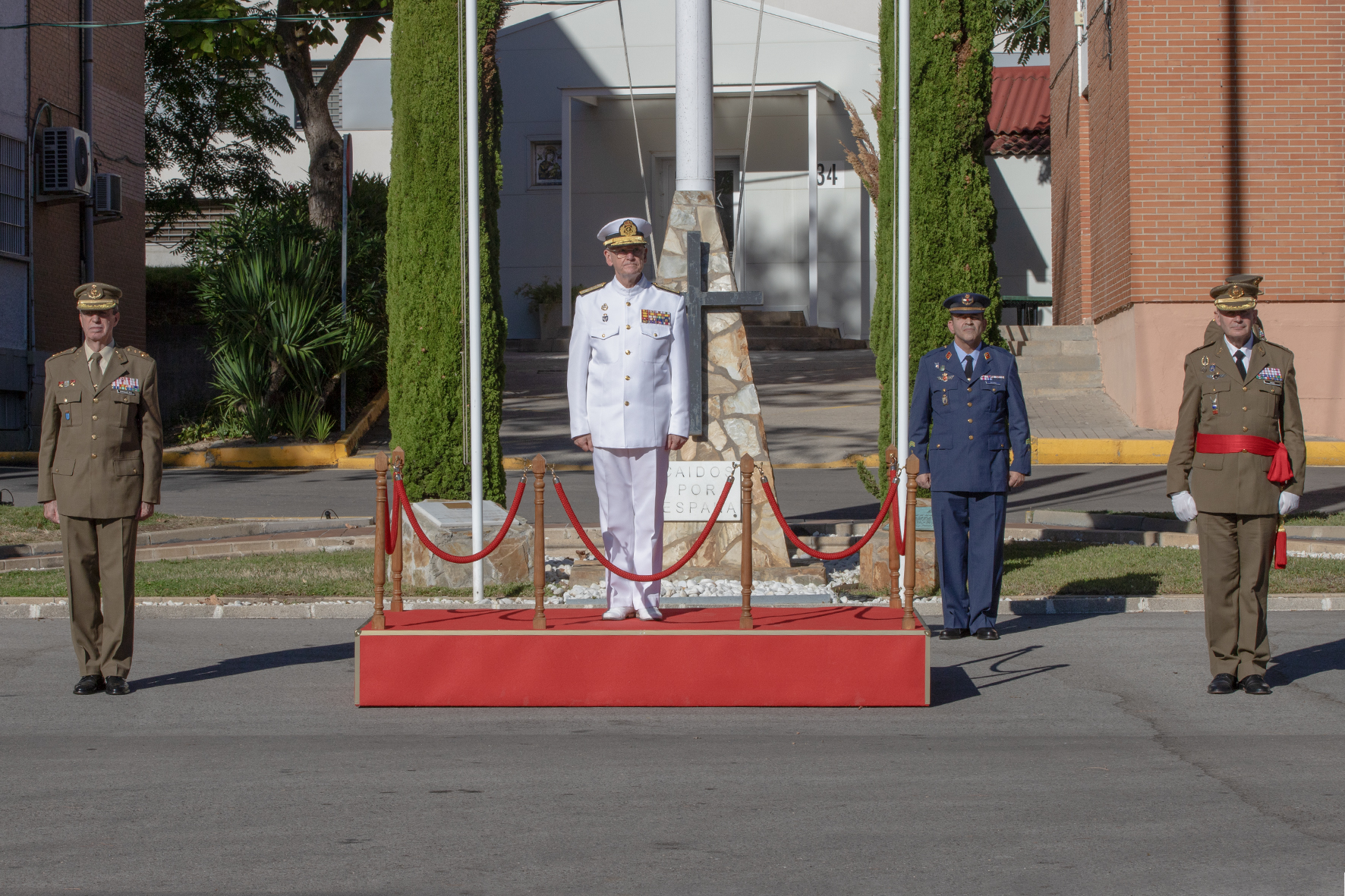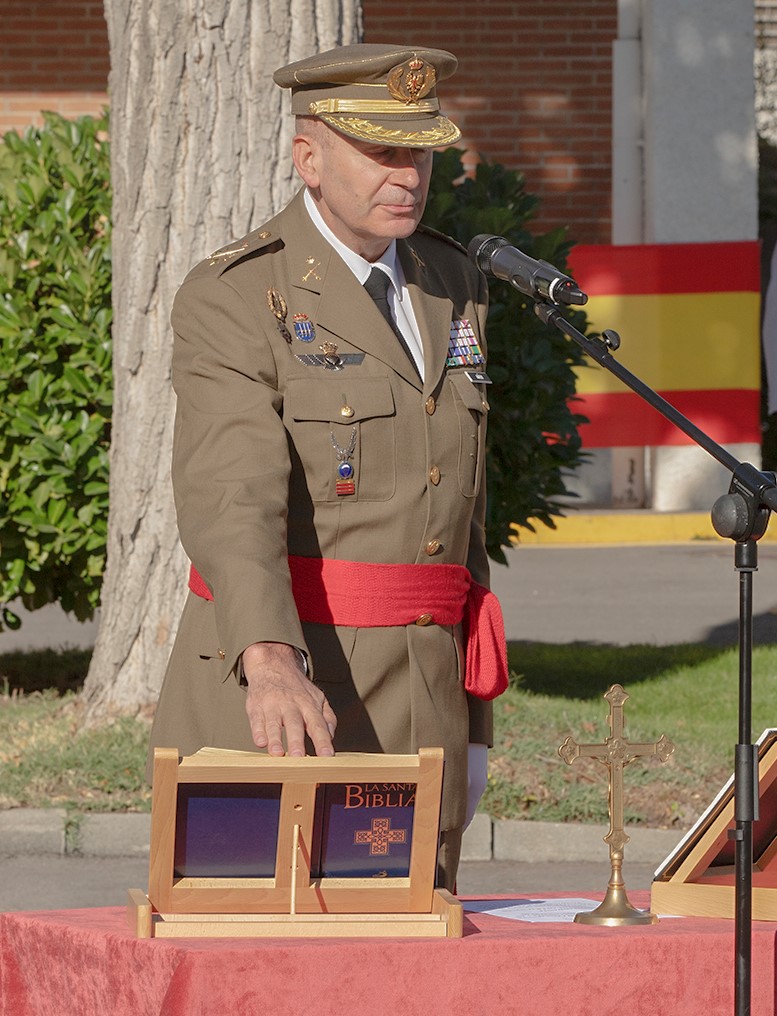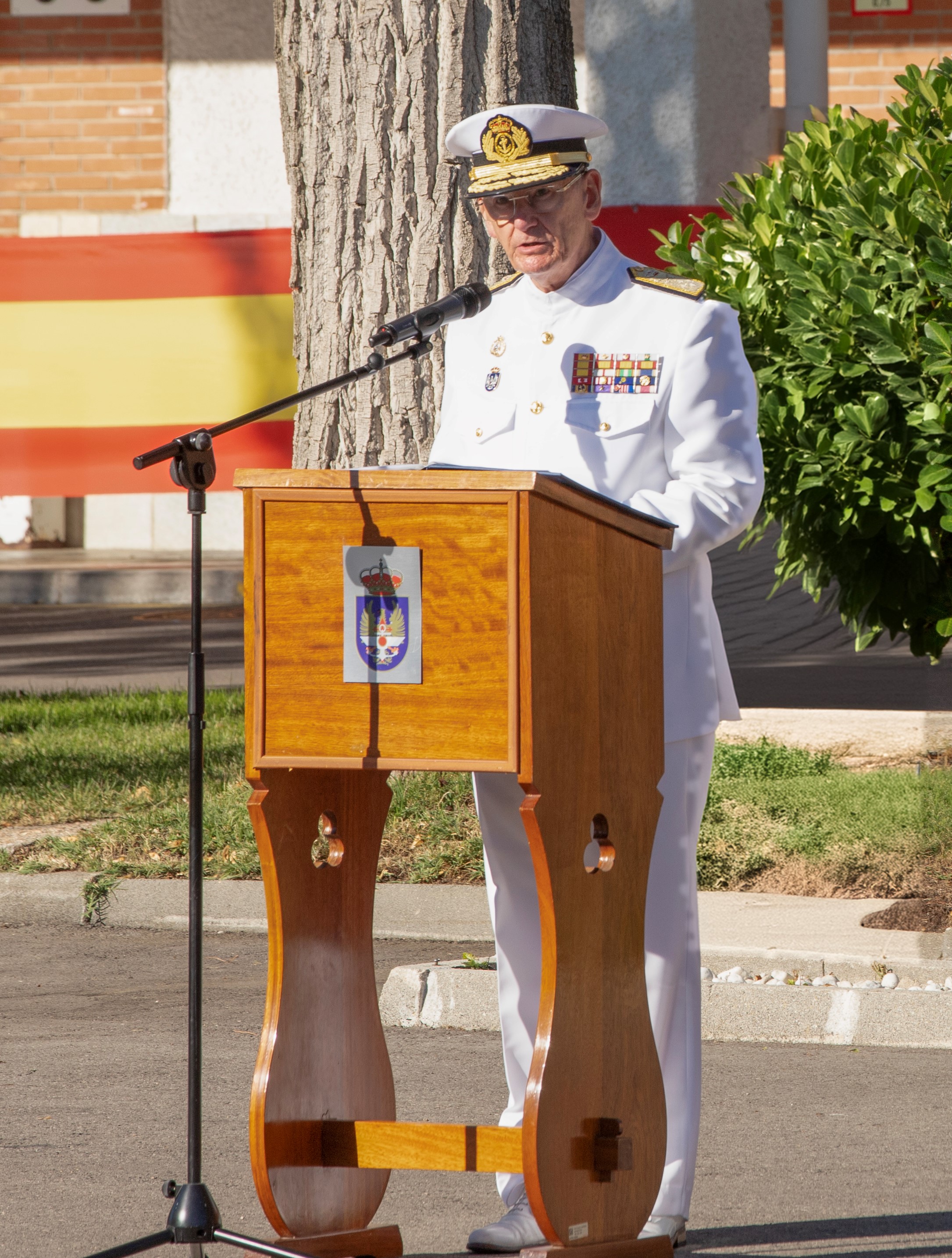
Press
Commander Operations Command sets out the objectives of his new post
Madrid
September 9, 2024
Lieutenant General José Antonio Agüero Martínez takes over as Commander of the Operations Command.
Today, with 3,460 men and women of our Armed Forces serving beyond our borders, in twenty different countries, as well as more than 3,000 military personnel involved in Presence, Surveillance and Deterrence Operations on national territory, Lieutenant General José Antonio Agüero Martínez takes command of his new post as Commander of the Operations Command (MOPS).
During the ceremony, presided over by the Chief of Defence Staff, Admiral General Teodoro E. López Calderón, Lieutenant General Agüero outlined a line of action for each of the tasks assigned to the MOPS: the planning, conduct and monitoring of military operations.
‘The variety of scenarios and tasks in which we work attests to Spain's relevance on the international stage. For this reason, from the Operations Command's point of view, practicality prevails in planning. A plan at the operational level is only a forecast and, as such, flexibility and agility are required to adapt it to the tactical planning executed by the Component Commands. When a crisis breaks out, tactical planning often moves faster than operational planning. The latter must be adapted to the specific problem it is trying to solve, without being an unnecessary straitjacket for the tactical level,’ he explained.
In leadership, ‘I am a strong advocate of delegation of authority. Lack of trust in subordinate echelons leads to excessively large and complex command structures, which complicate and lengthen decision-making processes.
And, with regard to the supervision of forces transferred to other international organisations, ‘the spirit of service prevails, as our main task is to support the implementation of their tasks. In this respect, I would like to highlight the exemplary attitude of my predecessor, General Braco, who used to say to contingent commanders when he said goodbye: ‘Be careful what you ask me for, because I will give it to you’.
In conclusion, CMOPS recalled that a few months ago, when he commanded the NATO mission in Iraq, he was visited by NATO Assistant Secretary General for Operations Tom Goffus: ‘During that visit, we had a meeting with the ambassadors of the major contributing nations, where we had to present and defend the Alliance's work in the country, complementing each other's political and military perspectives. At the end of that meeting, Tom Goffus said to me, ‘I have the impression that my whole life has been a preparation for the task I am now undertaking’. For me, this phrase has special resonance as I face what is likely to be the pinnacle of my military career.
Operations Command
As defined by CMOPS: ‘Operations Command essentially performs three tasks; it plans, conducts and oversees. It does so at the operational level, integrating actions in all the domains where military operations take place; land, maritime, air, space, cyber and information.
Thus, the monitoring or control of Spanish military personnel deployed in foreign operations is only one of the tasks of this command. It should be pointed out that the Operations Command plans and conducts operations to confront, exclusively with national means, threats that are not shared with the security organisations to which Spain belongs.
It plans the actions of the Armed Forces in the event of contingencies that may arise and ongoing crises. We plan the defence of the national territory against potential adversaries, the evacuation of non-combatant personnel from places in conflict or the participation of the Armed Forces in the fight against fires and natural disasters.
As Joint Force Command, we conduct permanent Presence, Surveillance and Deterrence operations to guarantee the territorial integrity of our homeland. We also execute the plans in force when the contingency for which they were foreseen is triggered. In this case, we assume Operational Control of the Forces transferred by the Army and Navy to the Chief of Defence Staff.
Likewise, at the national level, the Operations Command supervises the military cooperation activities carried out by our Armed Forces in various African countries.
At the multinational level, the MOPS supervises the actions of the Spanish Forces transferred to international organisations, which Lieutenant General Agüero highlighted:
- In the NATO framework: in Iraq, on the Alliance's eastern flank and in the permanent maritime groupings deployed in the Atlantic and the Mediterranean.
- Within the European Union: fighting piracy in the Horn of Africa, maintaining a presence in the Gulf of Guinea and training armed forces in countries as diverse as Ukraine, Bosnia and Herzegovina, CAR, Somalia and Mozambique.
- In the framework of the United Nations: monitoring compliance with the peace agreements in southern Lebanon and the peace processes in Colombia.
- And finally, in the framework of international coalitions formed ‘ad hoc’ to address a specific task, such as the defeat of the Islamic State in Iraq.
Fotos




